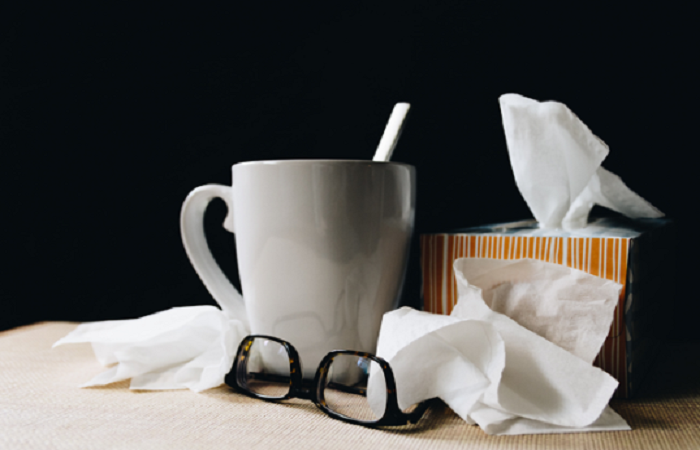
You contracted COVID-19, but weren’t ill enough to need hospitalisation. You battled through the acute stages of the illness yourself, and now your temperature is back to normal and your cough has subsided. You’ve started feeling better, but it’s a few weeks down the line and you’re still finding it hard to muster up the energy to carry out your daily activities the way you did before. What’s this all about? Could it be post-viral fatigue?
Here we answer some of the questions you might have as to why you’re still not yet back to normal levels of activity and how you can help yourself.
Q. What is post-viral fatigue?
A. The dictionary definition of fatigue is ‘extreme tiredness, typically resulting from mental or physical exertion, or illness.’ When you’ve had an acute illness, such as a viral infection, some degree of fatigue is fairly common. This is just part of the body’s response to fighting and recovering from the infection and is usually short lived, with a steady return to normal health in a few weeks. In some cases, the fatigue can last for months rather than weeks, and may be accompanied by other symptoms.
Q. What other symptoms can be associated with post-viral fatigue due to COVID-19?
A. To support survivors of COVID-19, Asthma UK and the British Lung Foundation have teamed up to create a ‘Post-Covid hub’ (https://www.post-covid.org.uk/). Since its inception, over 1,000 people have been in touch with the founding organisations, to describe the symptoms they have experienced after recovering from the acute phase of COVID-19. In addition to the feelings of fatigue and a lack of energy, a cluster of symptoms including weight loss, difficulty sleeping, problems doing activities that were previously possible, difficulty with memory or concentration, and struggles with daily tasks that involve planning or problem solving have been reported. Some sufferers also describe an ‘ebb and flow’ of the symptoms – rather than a steady improvement, days that were previously ‘good’ suddenly become ‘bad.’
Q. What causes post-viral fatigue?
A. The exact physiological mechanisms as to why post-viral fatigue happens and lasts longer in some people than others remain uncertain. Some scientists speculate the symptoms of fatigue may be a direct result of a virus disrupting the body’s energy producing machinery, the mitochondria (a bit like a dysfunctional battery), or in the case of SARS (Severe acute respiratory syndrome, a disease also caused by a corona-virus), affecting the cells of the central nervous system. Other schools of thought include a possibility that post-viral fatigue occurs as a secondary effect of the physical and psychological symptoms sufferers experience. Other symptoms may be due to higher than normal levels of inflammation causing cytokines (cells of the immune system that act as a first line of defence in response to a virus or bacteria) circulating in the body.
Q. How is post-viral fatigue diagnosed?
A. Fatigue is a general symptom, so can be indicative of a number of conditions. If you are experiencing some or all of the symptoms above, and they aren’t improving, then make sure you check in with your GP. He/she will be able to run tests to check for other conditions that can cause persistent fatigue and will ask about other symptoms, both physical and psychological, and how long you have been experiencing them. Getting a complete picture of your overall health status will help in making a diagnosis.
Q. Are there any medical treatments I can take for post-viral fatigue?
A. Unfortunately, there are no medicines or supplements you can take that will speed up your recovery or improve your symptoms. There is no evidence that taking iron tablets, or high dose vitamin C will help in this situation either. If you do have specific symptoms, you can always talk to your GP or Pharmacist to see if there is something that might be suitable for you in the short term.
Q. Is there anything I can do to help myself?
A. The Royal College of Occupational Therapists have produced practical advice for dealing with post-viral fatigue after COVID-19 for people who have recovered at home. This is available on line (https://www.rcot.co.uk/how-manage-post-viral-fatigue-after-covid-19-0) and has been endorsed by the Intensive Care Society. The advice is helpfully broken down into the different stages of recovery after a virus, including what to do initially, next steps and how to move forward. Tips are given on all aspects of self-care, including rest, nutrition and progressing activities based on how you are feeling. They do stress, however, that it is important to give yourself time and not to try and rush your recovery.
The general guidance is that the best management is old-fashioned convalescence – taking things easy, get plenty of rest and relaxation, start exercising gently and within your limitations, get enough sleep, maintain a healthy diet and avoid stressful situations as much as possible. If you are struggling to return to work then talk to your employer or occupational health team, but don’t go back until you are fit.
Q. What shall I do if I’m not improving?
A. The Royal College of Occupational Therapists recommendation is, ‘if after building up the pacing of your daily activities, you don’t see any improvement in what you can do, then you should seek medical advice by speaking to your GP.’
In summary, post-viral fatigue refers to a feeling of extreme tiredness which may be accompanied by other symptoms, following a viral infection. The condition isn’t fully understood, and there are no medical treatments that can make it go away faster, but there are a number of things you can do to help improve your symptoms. If after trying different strategies, your symptoms still aren’t improving, then make sure you seek medical advice from your GP as soon as possible.